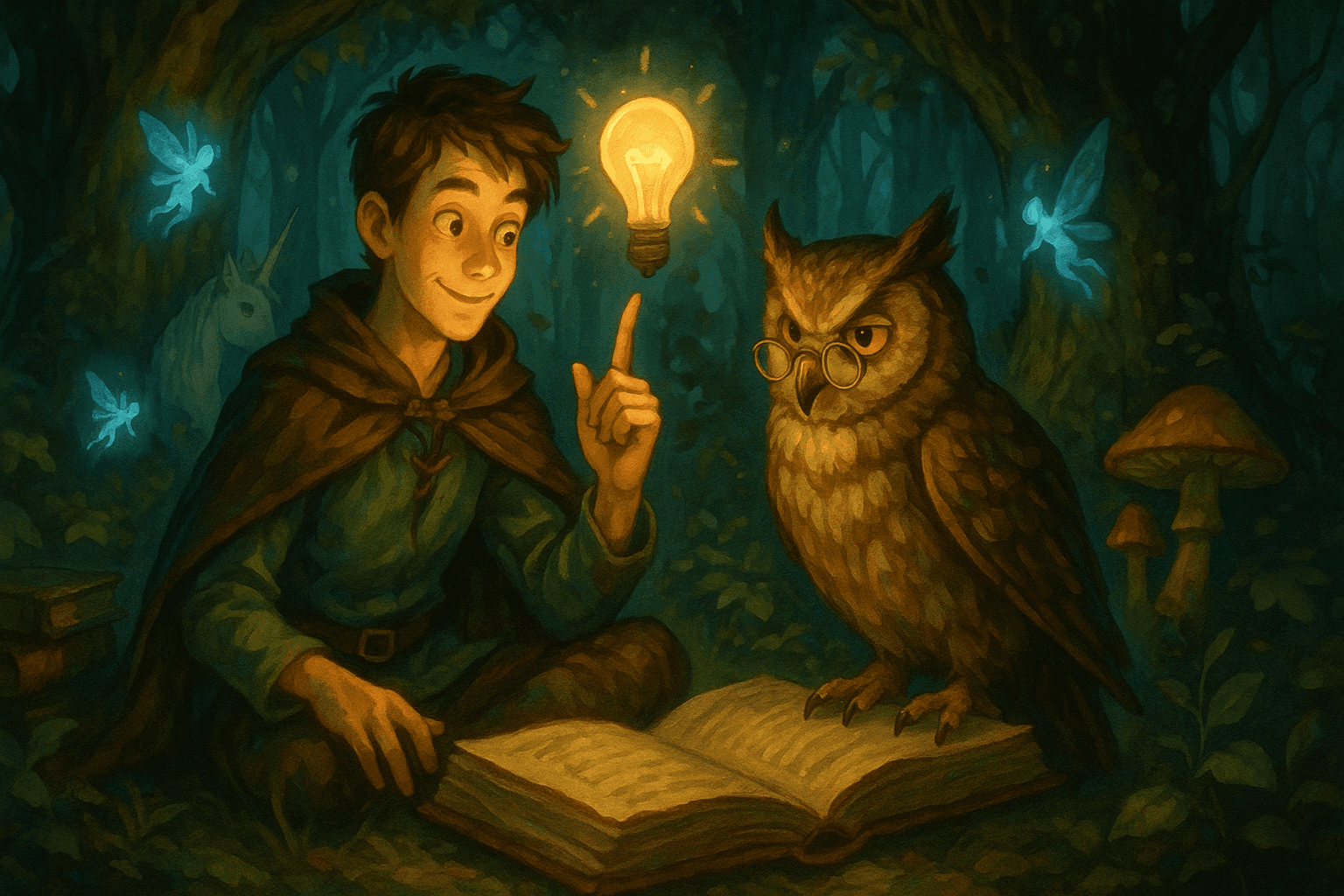The Power of Cleverness in Grimms' Fairy Tales

In the enchanting world of Grimms' Fairy Tales , cleverness serves as a vital tool for characters navigating challenges, overcoming adversity, and transforming their fates. From cunning animals to quick-witted humans, cleverness reveals itself in myriad forms, often leading to unexpected triumphs and moral lessons.
Take, for example, the youngest son in the tale of "The Brothers Grimm Fairy Tales." While his older brothers are easily distracted, he listens to the wise counsel of a fox, demonstrating that true cleverness often lies in recognizing when to seek guidance. His journey not only tests his wit but ultimately leads him to reclaim his rightful place, showcasing how cleverness can emerge from humility and obedience.
In "Hans in Luck," we see cleverness manifest not merely in intelligence, but in the ability to adapt one's perspective on fortune. Hans's series of trades, each based on the belief that he’s improving his situation, reveals how sometimes cleverness is about finding contentment in life’s unexpected turns. His final trade—with a grindstone—might seem like a loss, but it leads him to a moment of freedom that celebrates the importance of happiness over material wealth.
"Jorinda and Jorindel" presents another dimension of cleverness through resourcefulness and determination. Jorindel’s quest to rescue Jorinda from an old fairy’s curse exemplifies how cleverness, paired with bravery, can conquer even the darkest magic. His dream of a magical flower and the trials he faces highlight that cleverness often requires both creativity and persistence.
The collective cleverness of the aging animals in "The Travelling Musicians" showcases teamwork as they devise a plan to outsmart robbers. Their collaboration emphasizes that cleverness can thrive in unity, illustrating that together, even those traditionally viewed as weak can achieve victory over adversity.
However, as seen in "The Dog and the Sparrow," cleverness can also lead to chaos, especially when intertwined with revenge. The sparrow, while clever in her means of seeking justice for her friend, ultimately orchestrates her own downfall through her cunning. This tale serves as a reminder that cleverness, when misused, can spiral into negative consequences.
In contrast, "The Frog-Prince" shows that cleverness is not solely about cunning; it can also embody understanding and compassion. The princess’s journey reflects her growth from frustration to realization, where true cleverness lies in honoring commitments and recognizing the value of kindness.
Cleverness in these tales often leads to redemption, like in "Rumpelstiltskin," where the miller’s daughter cleverly outsmarts the dwarf, using knowledge as her weapon. The theme resonates through stories of transformation, like "Rapunzel," where cleverness becomes a lifeline, allowing characters to navigate their way through trials and tribulations.
As we dive deeper into these stories, it becomes evident that cleverness isn’t just an innate trait; it’s a skill that characters cultivate through experience and choice. In "Snow-White and Rose-Red," cleverness is intertwined with bravery and compassion, leading to a joyous resolution that rewards kindness.
Ultimately, the theme of cleverness in Grimms' Fairy Tales serves as a powerful reminder that intelligence, resourcefulness, and compassion can change the course of one’s destiny. Whether through the cleverness of a humble tailor or the cunning of a wise fox, these tales inspire readers to appreciate the many facets of cleverness—its potential for good, its capacity for mischief, and its essential role in overcoming life’s challenges. So, the next time you face a dilemma, remember: sometimes, it’s not about being the strongest or the fastest; it’s about being the cleverest.
Dive into the whimsical and thought-provoking world of Grimms' tales, where every clever twist holds a lesson waiting to be uncovered!
Books: Grimms' Fairy Tales
Authors: Jacob Grimm
Publishers: Public Domain